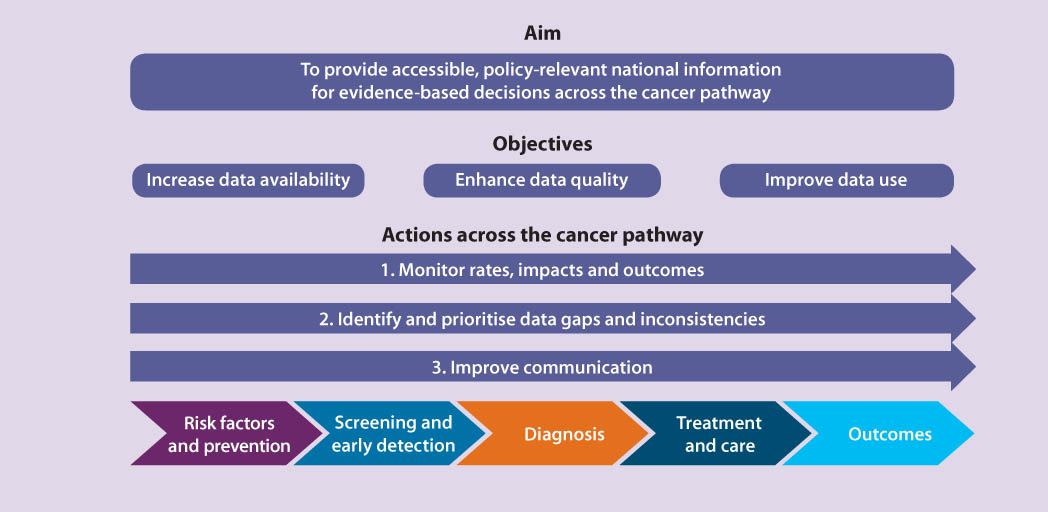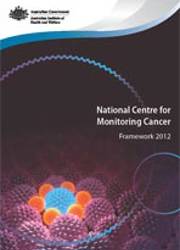Summary
The National Centre for Monitoring Cancer (NCMC) was established in 2009 to monitor cancer rates and their impact and outcomes, as well as to identify and address priority gaps and deficiencies in population-level cancer and related data. The NCMC is located and managed within the Australian Institute of Health and Welfare (AIHW ) in accordance with AIHW policies, procedures and legislation, and is advised by a multidisciplinary Cancer Monitoring Advisory Group.
The NCMC aims to provide accessible, policy-relevant national information for evidence-based decisions across the cancer pathway. NCMC initiatives will be undertaken by:
- monitoring rates, impacts and outcomes
- identifying and prioritising data gaps and inconsistencies
- improving communication.
These actions are applied at every stage of the cancer pathway—from risk factors and prevention to screening and early detection, diagnosis, treatment and care and, finally, outcomes—to form NCMC activities that address cancer information needs.
Figure S1 provides a graphical conceptualisation of the aims and objectives for the NCMC.

The NCMC Framework guides and organises the systematic planning, implementation and evaluation of NCMC activities. These are prioritised according to the criteria of relevance, strengths, feasibility and partnerships. Through these initiatives, the NCMC assists health professionals, researchers, policy makers and the general public, and contributes towards informed health system planning and effective service delivery to reduce the burden of cancer in Australia.
Preliminary material: Acknowledgments; Abbreviations
1 Introduction
2 The importance of cancer data in Australia
- The burden of cancer
- Cancer control and the need for cancer data
- The cancer data cycle
- Sources of cancer data
- National population-based cancer and screening data
- Cancer data along the cancer pathway
- Data linkage to enrich cancer data
3 The National Centre for Monitoring Cancer(NCMC)
- Establishment of the NCMC
- The NCMC Framework
Appendixes
Appendix A: Cancer Monitoring Advisory Group initial terms of reference (2009)
Appendix B: Cancer Monitoring Advisory Group members
End matter: References; List of tables; List of figures



